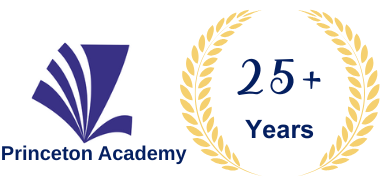📌 Introduction
Expand your IT auditing skills with expert-led training that helps you confirm key systems, processes and documentation for your organization. Get practical know-how on the latest cyber security tools and processes from a faculty with real-world IT and cyber security auditing experience.
This workshop examines information systems in order to provide valuable information about the operations and security of your IT systems. By the end of this course, you will have in depth understanding of cutting-edge techniques of auditing in order to provide audit efficiently and effectively.
🎯 Course Objectives
🔍 Understand core IT audit processes, including standards, risk assessment, and audit delivery techniques.
⚙️ Learn IT governance, risk management, and effective resource and project portfolio management.
💻 Gain knowledge of system acquisition, development, vendor management, and implementation quality.
🛠️ Develop skills in IT operations, service management (ITIL), data quality, and business continuity.
🛡️ Master information asset protection through security policies, access control, network security, and cyber
🔍 Information System Auditing Process
• IT audit: standards, techniques and approaches used in IT audits;
• Risk assessment in the audit context;
• Audit planning and delivery techniques;
• Gathering information and audit evidence;
• Presenting findings and recommendations, follow-up audits.
⚙️ Governance and Management of IT
• IT strategy, policies, standards and procedures
• Enterprise risk management;
• IT governance practices, organisation and segregation of duties;
• Managing IT resources and project portfolios;
• Maturity and process improvement models;
• IT performance monitoring;
💻 Information Systems Acquisition, Development, and Implementation
• Evaluating IT investment business cases;
• Selecting vendors and managing contracts;
• Project management;
• Software methodologies and development tools;
• Information system implementation;
• Implementation quality assessment objectives and practices.
🛠️ Information Systems Operations, Maintenance and Support
• Supporting the organisation’s IT architecture;
• Managing IT services under ITIL;
• IT service level management practices and operational management;
• Data management and data quality;
• Business continuity management.
🛡️ Protection of Information Assets
• Information security policies, standards and procedures;
• Information security controls and activities;
• Access management;
• Personnel security;
• Network infrastructure security;
• Physical security;
• Cyber threats and pentesting.
COURSE SCHEDULE & FEES
DOWNLOAD COURSE CONTENTS
Please click the button below to download the course content. You'll need to provide your contact information to receive the document.
REQUEST MORE INFORMATION
Please fill out the form below to request more information about this course.
Error: Contact form not found.
